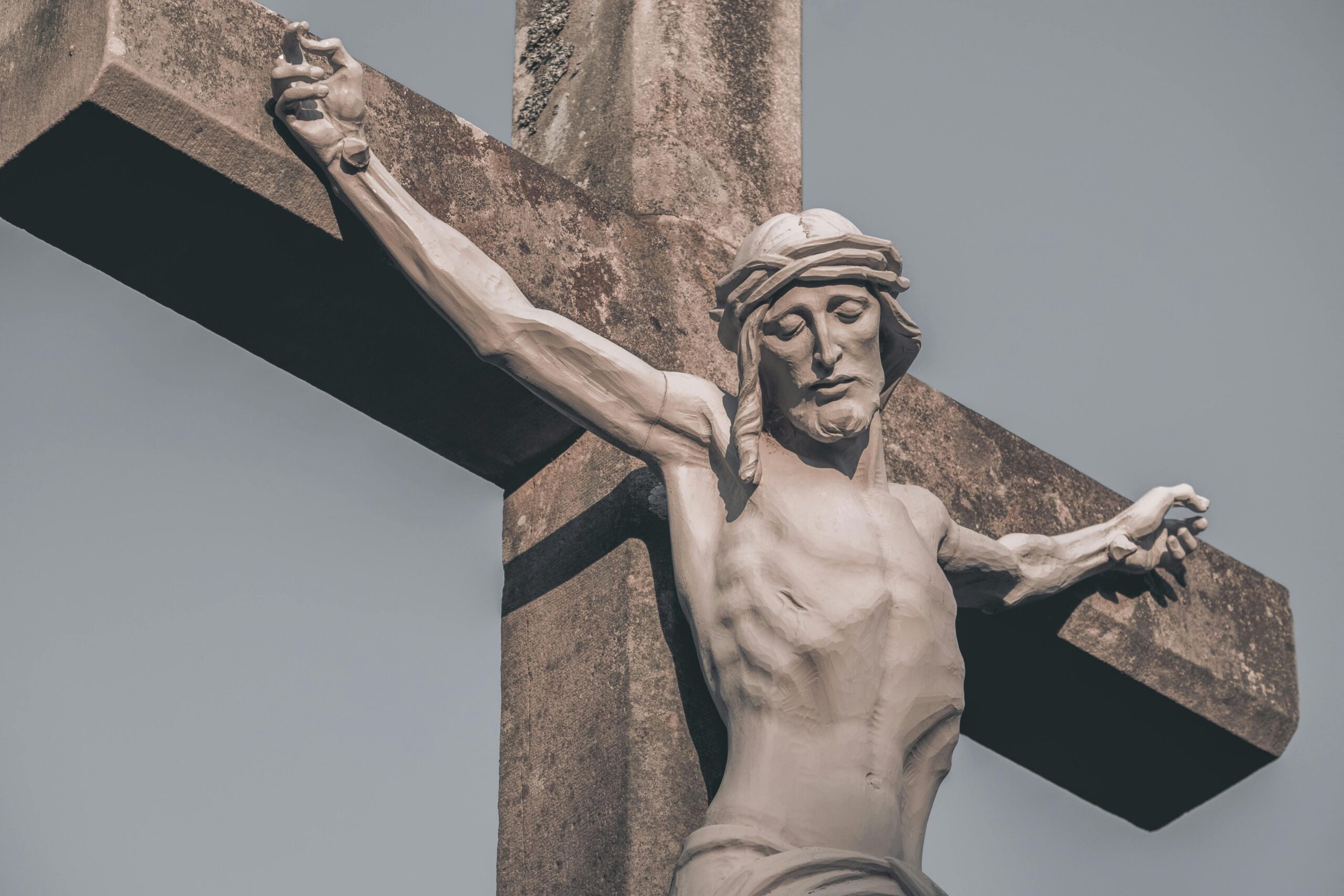Your cart is currently empty!

Redeemed by the Percious Blood of Christ
By Xh. Cher Cha Yang
1 Peter 1:18–19, NIV
For you know that it was not with perishable things such as silver or gold that you were redeemed from the empty way of life handed down to you from your ancestors, but with the precious blood of Christ, a lamb without blemish or defect.
Easter is the radiant centerpiece of the Christian calendar, a celebration of resurrection, victory, and new life. However, before the empty tomb, there was the cross; before the jubilant shouts arose, there were anguished cries. At the core of this holy season lies a profound and transformative mystery that changed the course of history: the shedding of the precious blood of Jesus Christ.
In 1 Peter 1:18–19, the apostle Peter speaks to believers dispersed across the Roman Empire, reminding them of the incredible cost of their redemption. He contrasts the fleeting value of worldly treasures with something infinitely more precious—the blood of Christ. In doing so, Peter invites us to consider the staggering worth of what was given for our salvation and let that reality shape how we live.
This Easter, let us explore what it means to be redeemed, why Christ’s blood is called “precious,” and how this truth can reshape our identity, worship, and daily walk with God.
Peter writes, “you were redeemed…” The term “redeemed” carries profound significance. In the context of the first century, redemption typically referred to the liberation of a slave through the payment of a ransom. Peter notes that before Christ, we were ensnared in an “empty way of life,” a futile existence passed down through generations. This life is characterized by human tradition, performance, idolatry, and sin. Although the language may be ancient, this “empty way” resonates with our contemporary lives—filled with striving yet lacking in lasting purpose, achieving goals that ultimately fail to satisfy, and adhering to values that shift with time. However, we have been redeemed not through money, influence, or tradition, but by something far more precious. The ransom for our freedom was not gold or silver. It was not earned, bartered, or inherited; it was given.
When Jesus went to the cross, He willingly offered Himself as the ultimate ransom. As stated in Mark 10:45, “The Son of Man came… to give his life as a ransom for many.” He laid down His life not out of compulsion but out of love. This is not merely a theoretical transaction but a cosmic rescue mission. The perfect Son of God entered our broken world, took our place under divine judgment, and fully paid our debt. The cross was not a tragic accident but a deliberate expression of divine love.
Peter emphasizes that Christ redeemed us through His precious blood. Why is it referred to as “precious”? What makes it so unique?
Jesus was not merely a good teacher or moral example; He was (and is) God’s sinless, eternal Son. Peter describes Him as “a lamb without blemish or defect,” echoing the language of Old Testament sacrifices. According to the Mosaic Law, lambs offered for sin needed to be spotless, symbolizing purity, innocence, and perfection. Christ embodied this imagery flawlessly. He lived a sinless life, never faltering in thought, word, or deed. Only a life lived in such perfection could be offered on behalf of others. His blood was wholly untainted by sin, making it truly priceless.
Christ’s blood does what nothing else can do—it cleanses, forgives, and restores.
- It cleanses us from sin. (1 John 1:7)
- It reconciles us to God. (Ephesians 2:13)
- It secures our eternal redemption. (Hebrews 9:12)
No other sacrifice could achieve this; no human endeavor could bridge the chasm between God and humanity. Only the blood of Jesus has the power to dismantle the grip of sin and death. The precious blood of Christ not only made salvation possible but also ensured it. The debt has been settled, the chains have been shattered, and the door is wide open. This is why the blood of Christ is not only precious but genuinely priceless.
Peter’s words are not only theological; they are also impactful. When you recognize that you have been redeemed by something so invaluable, your way of living inevitably changes. Peter highlights the contrast between the preciousness of Christ’s sacrifice and the “empty way of life handed down” to us. In essence, once you comprehend what Christ has accomplished, the futility of life apart from Him becomes evident. The invitation is to embrace a different way of living, motivated by gratitude rather than guilt.
Christians are invited to embrace a transformative life characterized by purpose, holiness, and hope. In the verses surrounding this passage, Peter encourages believers to pursue holiness, live as sojourners in this world, and fully anchor their hope in the grace to come. When we comprehend the true cost of our redemption, sin loses its allure, and the pleasures of this world cease to satisfy. We are no longer our own; we have been bought at a price (1 Cor. 6:20).
In verse 17, Peter urges us to live in “reverent fear,” acknowledging that God is both our Father and our Judge. This fear is not a terror but rather a profound respect and awe. The cross is a powerful reminder of God’s justice and mercy. To live in reverence of the cross entails walking humbly, loving deeply, and forgiving generously. It means viewing each moment as a precious gift and recognizing every individual as someone for whom Christ sacrificed His life.
The deeper we understand the significance of Christ’s sacrifice, the more our hearts are compelled to worship. The blood of Jesus is not merely a dusty theological idea but the core of our narrative. Every song of praise, prayer of gratitude, and deed of service springs forth from this essential truth: we have been redeemed by the precious blood of Christ.
At Easter, we celebrate the resurrection, but it is important to understand that the resurrection only holds meaning when viewed through the lens of the crucifixion. The empty tomb affirms the cross; it is the Father’s “yes” to the Son’s sacrifice. Scripture teaches us that without the shedding of blood, there is no forgiveness (Heb. 9:22). However, because that blood was shed, forgiveness is offered to all who believe. Therefore, as we celebrate Easter, we do so with joy and a sense of reverence. The resurrection assures us that death has been conquered, yet the cross serves as a poignant reminder of the cost involved.
Easter is more than a season; it is a declaration of redemption. In a world chasing after perishable things, we have been bought with something imperishable: the precious blood of Christ. May this truth grip your heart, renew your mind, and transform your life. Moreover, may you never cease to marvel that the Son of God loved you enough to bleed for your freedom. He is risen, and we are redeemed.
Reflection
- What are some practical ways you can live in response to the price Jesus paid for your freedom?
- How does the precious blood of Christ affect the way you worship, work, and relate to others?
- What does it mean to you personally that you were “redeemed”? How does that change the way you see yourself?
